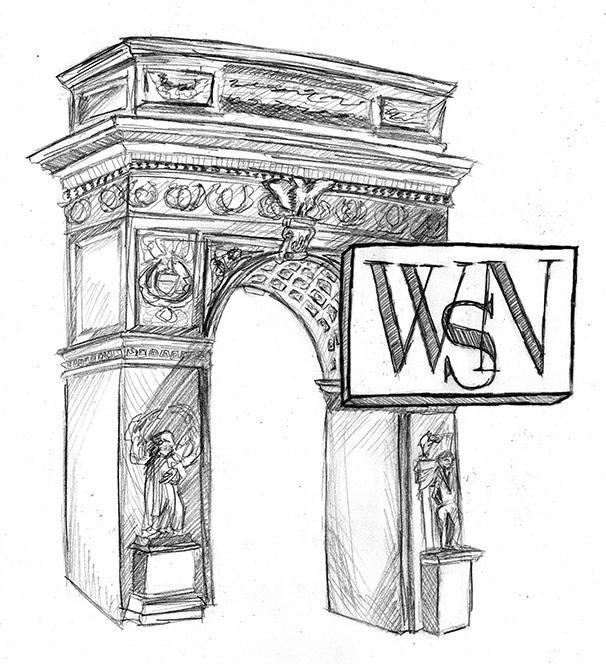Every outlet — from WSN’s editor-in-chief to the Washington Post— is talking about it. The so-called death of journalism as we know it is upon us. With major layoffs of talented journalists being announced daily, the industry and its future seems hopeless. This is particularly frightening for young journalists; what does it say about our desired professions if the industry is beginning to collapse? What does it say about us, the student journalists, who are entering a dying field? Looking at the statistics, rather than the headlines, reveals a different perspective. While the number of journalism jobs is declining, journalism schools are experiencing a surge in students. And so the current situation is more the supply of jobs failing to meet the demand, rather than a complete collapse.
From this perspective, journalism isn’t dying — it’s being reborn. And while these challenges are real and dangerous to the future of our industry, they are not fatal. Furthermore, as student journalists, this change in perspective forces us to reject the idea that we are preparing to be the final generation of a once-respected profession. Instead, it allows us to approach these problems with the mindset of pioneers in an evolving field that must rise to the challenge of transforming our industry and its crutches in the past in order to meet the challenges of today.
We’ve seen the repercussions of the decline of journalism even amongst NYU alumni. Carolina Moreno, the previous Latino Voices Editor at HuffPost, graduated from NYU in 2013 with a degree in Journalism and Latin American Studies, as well as a minor in French. After almost seven years in this position, however, she was one of the many experienced journalists that were laid off a few weeks ago. Moreno joined in on the trend of these journalists posting about their recent employment status and linking to threads of their published works in hopes of finding new jobs. To see someone as well-versed and accomplished as Moreno be suddenly laid off with so many others feels like a harsh, unexpected slap of reality. And journalism students are feeling rightly discouraged because of it — including us at WSN. How are we expected to feel confident about the $75,000 we are spending a year on tuition when the guarantee of a job right after graduation is no longer the case for so many of us?
It is worth noting the Arthur L. Carter Journalism Institute’s requirement of a double major. The Institute’s website openly acknowledges that “undergraduate major students are more successful after graduation when they enter the workforce with expertise on how to write and report as well as deep knowledge of a specific subject area.” There has also been some controversy in regard to whether journalism is more of a career or a four-year degree. But perhaps NYU’s active endeavor to make the journalism degree intersectional is the exact step we should be working towards as young journalists — maybe the future of journalism lies in its ever-changing form. It is frightening to consider that the traditional view of journalism might be vanishing — the interpretation we have in our minds of what it means to be a journalist, cemented in our memory from legendary images like that of “All the President’s Men” and “Spotlight.”
Journalists are public servants who will maintain their positions as arbiters of the truth. And today, we are living in a strangely dichotomous time. At a time in American socio-political history when truth is constantly under attack by the Executive Office, it would seem that the journalism industry is retaliating against government malfeasance. In many ways, this has been the case, as witnessed when TIME Magazine anointed “The Guardians” of the truth as their 2018 Person of the Year. The need for truth and accountability will never be quashed, despite the fact that we might feel that journalism in its current form is on the decline.
Newsrooms and print publications might not continue to exist with the regularity that they currently do. But we must maintain an understanding that as the definition of traditional journalism changes, its intentions will not. Journalism education should reflect this, and prepare students for entering a malleable industry. What can journalism students do to equip themselves in a society where our morning scroll through Twitter replaces our engagement with a physical newspaper? How can students train for careers less reliant upon 9-to-5 journalism employment and more in line with freelancing and independent investigation in which you may or may not get published?
The challenges that lie ahead for journalism majors will be difficult — that’s something we now know is inevitable. But that doesn’t change the fact that our work is crucial now more than ever. As student journalists working at a student-run publication, we feel a sense of responsibility in staying as informed as possible on this topic, and we understand its particular relevance given our current socio-political climate. For this reason, we at WSN hope to continue exploring the ever-changing aspects of the field and the future of journalism as a whole throughout this semester.
Opinions expressed on the editorial pages are not necessarily those of WSN, and our publication of opinions is not an endorsement of them.
A version of this article appeared in the Monday, Feb. 4, 2019 print edition. Email the Editorial Board at [email protected].























































































































































